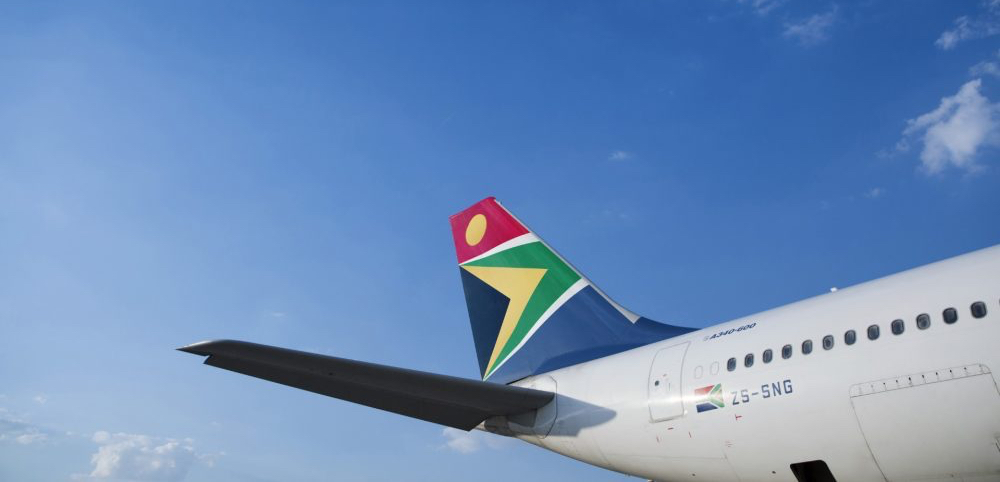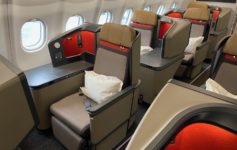
At long last, there is light at the end of the tunnel for South African Airways, the beleaguered flag carrier of South Africa. The South African government has announced plans to sell a majority stake of the troubled airline to a private African investment consortium while still maintaining minority control of the airline.
South African Airways Sold To Private Investment Group
The South African government will sell a 51% stake of South African Airways (SAA) to Takatso consortium. In exchange, Takatso has committed to spending 3 billion rand ($221 million) to breathe new life into the struggling airline. While the COVID-19 pandemic initially and ironically seemed like an opportunity for SAA to rebound with fewer competitive pressures, it nearly served as the final nail in the coffin.
Since September 2020, SAA has not operated, citing a lack of funding. Furthermore, the airline has sold or returned much of its fleet, including its pair of new Airbus A350s.
The South African government has poured billions of rand into the perennially troubled airline, including a fresh 7.8 billion rand ($574 million). Public Enterprises Minister Pravin Gordhan, who has been the face of the movement to save SAA, noted that the days of state funding were over. He also stated:
“The objective of bringing in an equity partner to SAA is to augment it with the required technical, financial and operational expertise to ensure a sustainable, agile and viable South African airline.”
The Takatso consortium includes:
- Aan-African investor group Harith Global Partners
- Aviation group Global Aviation
Tshepo Mahloele of Takatso told Reuters the $221 million initial investment will operate the airline for “12 to 36 months.”
I’d say that two year spread is a bit optimistic…
Even with the latest infusion of cash from both the government and Takatso, the future is uncertain for many divisions of the former SAA. Gordhan indicated three potential subsidiaries might not survive:
- Air Chefs
- SAA Technical
- Mango, SAA’s low-cost budget carrier subsidiary
Will International Service Return On SAA?
Under the new ownership, SAA will re-launch under a three-step plan:
- Domestic service
- Regional service
- International long-haul service
Long haul routes, traditionally huge loss leaders for SAA, would be “selected carefully.”
Takatso Chief Executive Gidon Novick noted:
“We’re going to be competing with the greatest airlines in the world, and we need to be mindful of that.”
A new route network has not been revealed, but I would expect a mix of domestic flights and international flights only touching the southern half of Africa.
CONCLUSION
While it is wise that South African Airways is focusing on domestic and regional routes to begin, the national carrier has quite an uphill climb to viability. Entrenched attitudes and a business model that does not sound all too different than before has been proven to succeed at only one thing: burning up cash.
image: SAA




I guess that my biggest question would be: exactly what do they intend to do differently?
Precisely. My question as well. Avoiding loss-leading longhaul prestige routes is a start, but there must be more than that.
And an exit from Star Alliance ??
Alliance memberships are costly, but so is leaving one. Better a one time charge than ongoing expense. They could do selective partnerships.
This deal just does not make sense and there’s a lot of questions that are unanswered…Whilst the DPE made the announcement, the announcement was pre-marure given that there’s still due diligence exercise that is currently underway and importantly the Black Empowerment Partner does not know what will be the cost of owning the 51% given to it by our Government
What concerned me even more, was the fact that the worker’s union thinks it business as usual and workers can just go back to work
This is basically re-arranging the deck chairs on the Titanic.
While a 51% stake is nominally being “sold”, the controlling shareholder (Harith) of the entity (Takatso) that is buying the stake has the state-controlled Public Investment Corporation as its largest shareholder.
Additionally, the Government of South Africa, although a nominally minority shareholder, will maintain a “golden share” with veto rights over “areas of national interest”.
Effectively, the Government is selling a stake from Department of Public Enterprises to Department of Finance and calling it a privatization. The actual private sector involvement here is minimal.
Same ****, different day.
I sense there are many dodgy deals shafted under the same carpet that depleted SAA funds before. Someone is not bringing on what is truest to this pointless consortium. And there is also lame clarity with other three subsidiaries why they are not going to survive with such such fat cash. My big gesture is of not being mindful for crippling unemployment rate we are on.